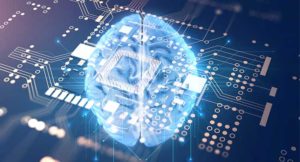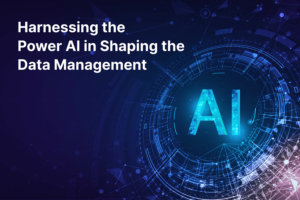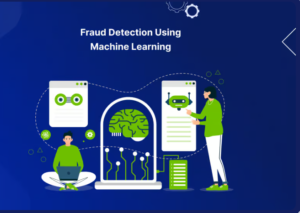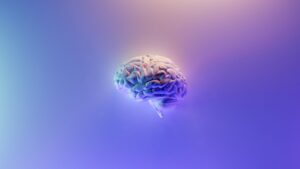AI Applications: Top 11 Artificial Intelligence Applications

AI or Artificial intelligence has exponentially changed the business scenario. What started as a manual automation is now capable of mimicking human actions? Not only human interactions, but advanced AI algorithms offers far better speed and reliability at a much lower cost as compared to its human counterparts. According to some research study, it is shown that by 2025, at least 30-35% of companies globally will implement AI.
So, what is Artificial Intelligence?
Artificial Intelligence (AI) is nothing but the simulation of human intelligence or behavior that the machine displays, and which is further trained to solve specific problems which include learning, reasoning and self-correction. Artificial Intelligence is not just a theoretical word. Rather it is a composition of various interesting domains which includes Machine Learning techniques, Natural Language Processing and Deep Learning. These AI models are trained using huge volumes of data and have the ability to make intelligent human-like decisions.
Artificial Intelligence is making our lives more efficient every day but in the name of automation we are becoming lazy ones not using our own brain. AI powers many programs and services that help us do everyday things such as connecting with friends, movie or song recommendations, using an email program, or using a ride-share service.
It seems we all are confused about the fact whether AI is a part of DataScience or AI is related to Machine Learning. Without diving into much details on this concept, in brief explanation we can say machine learning acts as a link that connects Data Science with Artificial Intelligence. Machine Learning is the continuous process of learning from data over time and this where AI comes into play as it helps as a tool for data science to get results and the solutions for specific problems. However, machine learning is what helps in achieving that specific goal. A real-life example of this is the whole working cycle of Google’s Search Engine where Google’s search engine is a product of data science, next it uses predictive analysis, an artificial intelligence system to deliver intelligent results to the users.
Artificial Intelligence Applications
In order to understand the concept of Artificial Intelligence in a much better way, it is quite important to know its various applications in different domains which impact our everyday life. So, in the below section we shall mainly focus into the top 11 applications of Artificial Intelligence. Without much delay, let us start them: –
#1. Artificial Intelligence in E-Commerce:
Artificial Intelligence is providing a competitive edge to the e-commerce industry as it has become more demandable and vital in the e-commerce business. It actually helps the shoppers to discover their choice of products with recommended color, size, or even the product brand. It plays an important role in personalized shopping, AI chatbots and even in fraud prevention.
- Personalized Shopping: Artificial Intelligence technology is employed in creating recommendation engines through which companies can engage better with the customers. These recommendations are made in accordance with their browsing history, preference, and interests. It helps in improving the relationship with their customers and their loyalty towards their brand.
- AI-powered Assistants: Virtual shopping assistants and chatbots always deliver smart and flexible analytics through virtual conversations which indeed helps improve the user experience while we do online shopping.
- Fraud Prevention: Credit card frauds and fake reviews are two of the most significant issues that the present world is dealing with and continuously finding better solutions to prevent it. By considering the above scenario, AI helps in reducing the possibility of credit card frauds taking places as it helps to identify and handle fake reviews.
#2. Artificial Intelligence in Navigation:
The most advantageous part of AI is its ability to boost efficiency and complete complex tasks that cannot be effectively handled by the humans. And when it comes to the navigation sector, this translates to evaluating real-time conditions with optimum route guidance that helps the driver avoid traffic, amongst other road hazards.
Based on research from MIT, GPS technology can provide users with accurate, timely, and detailed information to enhance safety. The technology uses a mixture of Convolutional Neural Network and Graph Neural Network, which makes lives easier for users by automatically detecting the total number of lanes and road types present behind obstructions on the roads. Uber makes excessive use of AI including some of the logistics companies in order to improve operational efficiency, analyze road traffic, and optimize routes.
#3. Artificial Intelligence in Robotics:
Robotics is another field where the use of artificial intelligence applications is excessively done. In simple words, AI gives robots a computer vision to navigate, sense and calculate their reaction accordingly.
The powerful combination of AI and Robotics automatically does the specified task inside and out of doors in the factory setting. Robots powered by AI use real-time updates to sense obstacles in its path and pre-plan its journey instantly. It is often used for carrying goods in hospitals, factories, and warehouses, real time course correction, cleaning offices and large equipment, and also in inventory management.
#4. Artificial Intelligence in Human Resource:
We all are aware of the fact that most MNC companies make the use of intelligent software to ease the hiring process mainly in shortlisting candidates based on resumes. This happens due to lack of time and so Artificial Intelligence helps with blind hiring. Using machine learning software, the hiring team can examine applications based on specific parameters and keyword matching. In other words, AI drive systems give an opportunity to scan job candidates’ profiles and resumes to provide recruiters an understanding of the talent pool they must choose from and freeing up time.
#5. Artificial Intelligence in Healthcare:
Artificial Intelligence finds diverse applications in the healthcare sector as it helps to analyze data, automate and predict further processes. It is mainly used in healthcare to build sophisticated, high dimensional machines that can detect diseases, predict ICU transfers, improve clinical workflow and identify cancer cells. It is quite beneficial to analyze chronic conditions with lab and other medical data to ensure early diagnosis as it uses the combination of historical data and medical intelligence efficiently for the discovery of new drugs and diagnoses with less chance of error.
#6. Artificial Intelligence in Agriculture:
Precision Farming and Predictive Analytics are the two most important prospects of Artificial Intelligence in agriculture. It can be defined in such a manner that a machine can easily mimic the human action and execute the tasks, from the simplest ones to those that are even more complex.
Learning, reasoning, and perception are those of the prime goals of artificial intelligence which helps to identify defects and nutrient deficiencies in the soil. This is done using computer vision, robotics, and machine learning as AI can analyze where weeds are growing, the chatbots can help to harvest crops at a higher volume and faster pace than human laborers.
#7. Artificial Intelligence in Gaming:
Another sector where Artificial Intelligence applications have found huge prominence is the gaming sector. It generates responsive, adaptive or intelligent behaviors primarily in non-player characters (NPCs) which seems like human-like intelligence. It mainly serves to improve the game-player experience rather than machine learning or decision making as we have studied earlier. In this sector, AI creates smart, human-like NPCs to interact with the players and predict human behavior using which game design and testing can be improved.
#8. Artificial Intelligence in Automobiles:
Artificial Intelligence can be witnessed working its magic in building self-driving vehicles, parking cars to recognize space around a vehicle and vision to safely make its way through the traffic. AI can also be used along with the vehicle’s radar, GPS part, camera, cloud services, and even the control signals to operate the vehicle smoothly and improve the inner vehicle experience and provide additional systems like blind spot monitoring, emergency braking, and driver-assist steering. Currently, AI is being highly implemented in automotive manufacturing, including supply and chain process, design, production, and post-production.
#9. Artificial Intelligence in Social Media Platforms:
Artificial Intelligence is the key component of the popular social networks that we use every single moment in our day-to-day life and helps to locate and communicate with friends and business associates easily. Checking Instagram in the early morning and this is where AI considers our likes, comments and the accounts we follow to determine what posts we are to be shown on our explore tab.
Next coming to Facebook where Artificial Intelligence is also used along with a tool called Deepest. With this tool, Facebook can understand conversations better and use it to translate posts from different languages automatically. The most popular Twitter uses AI for fraud detection, removing propaganda, and hateful content. Twitter also uses AI to recommend tweets that users might enjoy, based on what type of tweets they engage with. And even, LinkedIn uses AI to offer job recommendations, suggest people we might like to connect with, and serve us specific posts in our feed.
#10. Artificial Intelligence in Marketing:
Artificial intelligence applications are quite popular in the marketing domain where speed is essential. Using AI, marketers can deliver highly targeted and personalized ads with the assistance of behavioral analysis, pattern recognition, etc. It also helps with retargeting audiences at the proper time to ensure better results and reduced feelings of distrust and annoyance. AI can help with content marketing in such a way that matches the brand’s style and voice. It can be often used to handle routine tasks like performance, campaign reports, and much more. Chatbots powered by Natural Language Understanding, Natural Language Processing, Natural Language Generation, and Artificial Intelligence can analyze the user’s language and respond in the ways humans do. AI can provide users with real-time personalization supporting their behavior and can be used to edit and optimize marketing campaigns to suit a local market’s needs.
#11. Artificial Intelligence in Statistics:
Artificial intelligence (AI) is intrinsically data-driven as it calls for the application of statistical concepts through human-machine collaboration during the generation of data, the development of algorithms, and the evaluation of results. Statistical Learning is a set of tools for understanding data. These tools broadly come under two classes: supervised learning & unsupervised learning. In statistics, it is frequent that we come across these two terms known as covariance and correlation. No doubt, these two terms often seem similar, but they are not the same. In short, Covariance is when two variables vary with each other, whereas Correlation is when the change in one variable results in the change in another variable. If you want to grab your knowledge more on these two topics, then check out Correlation vs Covariance.
The ending lines…
Artificial Intelligence technology is quite important because it forms the basis of all computer learning and enables human capabilities which includes understanding, reasoning, planning, communication and perception to be undertaken by software increasingly effectively, efficiently and at low cost. Artificial intelligence is impacting the future every industry and every human being virtually. It has acted as the main heart of emerging technologies like IOT, cloud computation, big data, robotics and blockchain, and it will continue to act as a technological innovator for the foreseeable future.
Author Bio:
Senior Data Scientist and Alumnus of IIM- C (Indian Institute of Management – Kolkata) with over 25 years of professional experience Specialized in Data Science, Artificial Intelligence, and Machine Learning.
PMP Certified
ITIL Expert certified APMG, PEOPLECERT and EXIN Accredited Trainer for all modules of ITIL till Expert Trained over 3000+ professionals across the globe Currently authoring a book on ITIL “ITIL MADE EASY”.
Conducted myriad Project management and ITIL Process consulting engagements in various organizations. Performed maturity assessment, gap analysis and Project management process definition and end to end implementation of Project management best practices






